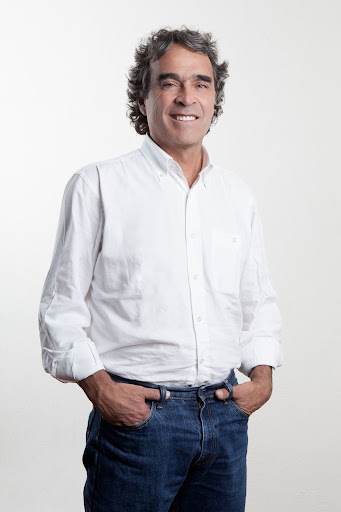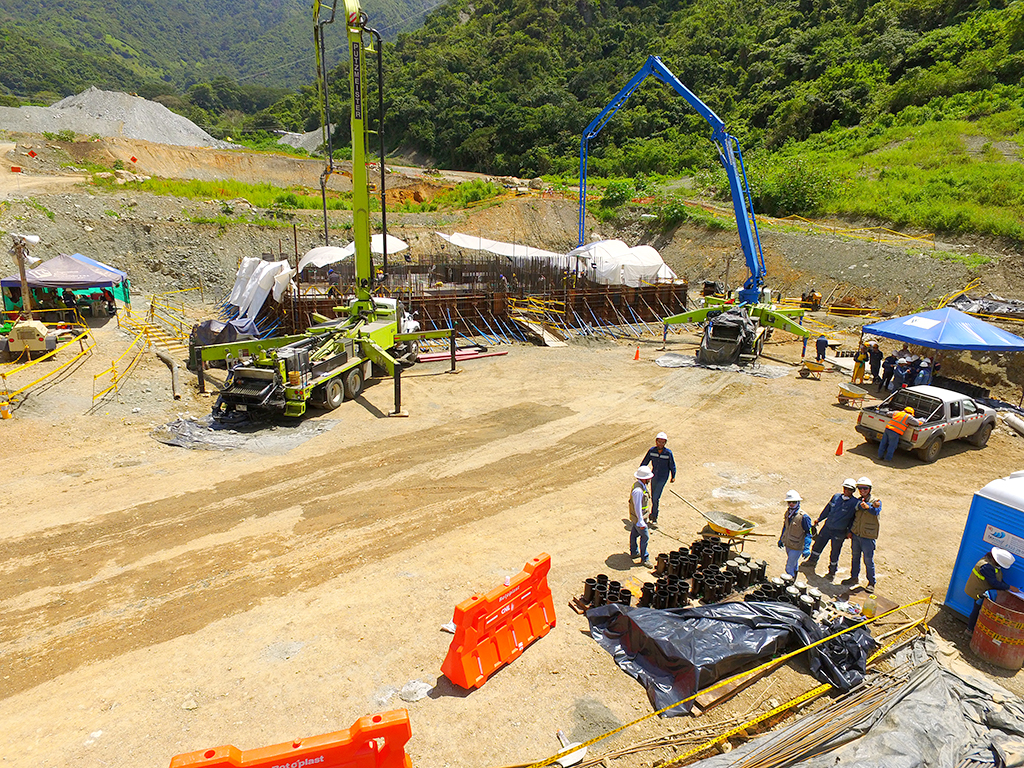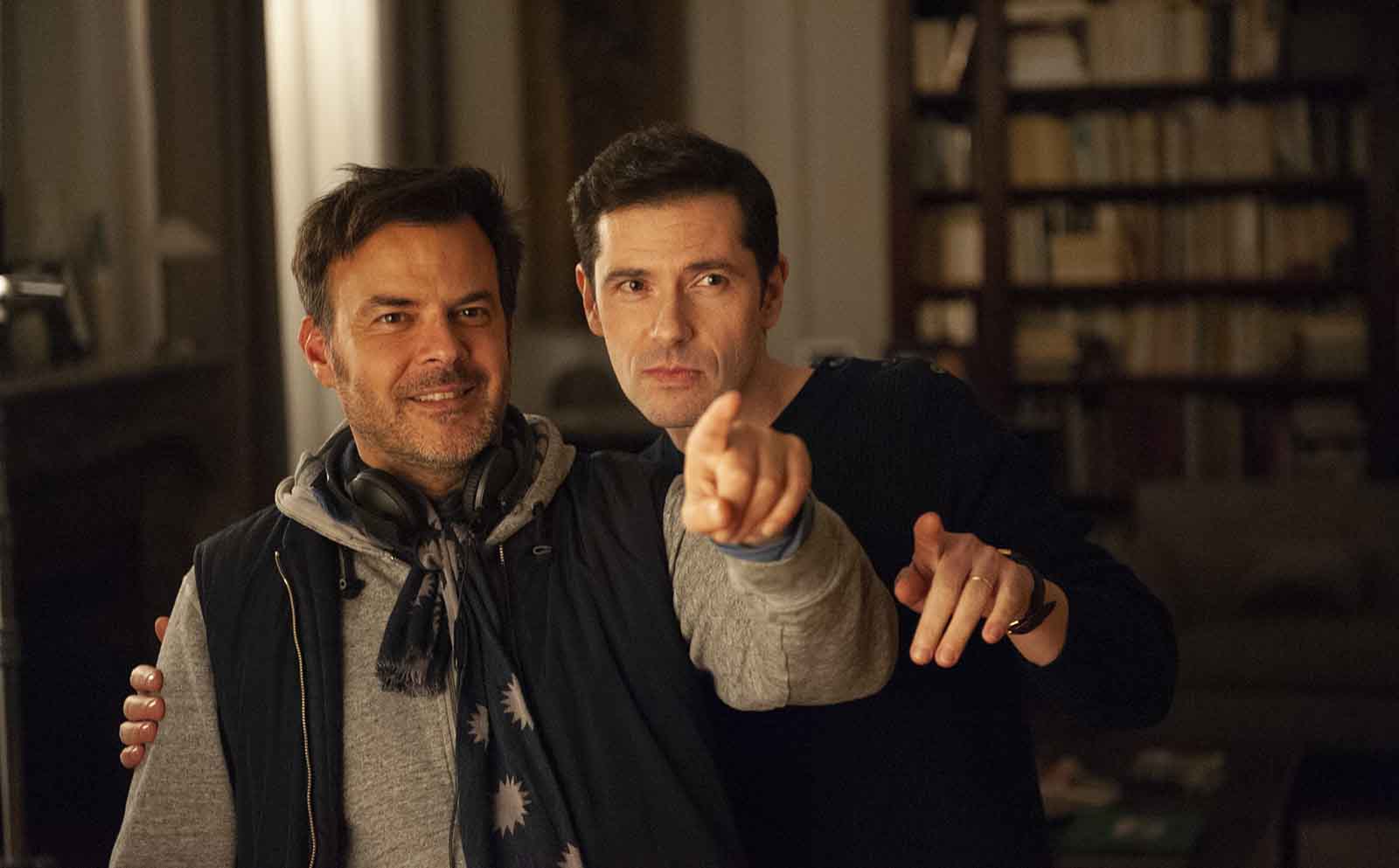
Former governor of Antioquia, Sergio Fajardo Valderrama, announced his pre-candidacy for Colombia’s presidency on November 5, 2019, and since then, polls have put him among the top candidates for ordinary Colombians.
Having narrowly lost a run-off to former Bogotá Mayor Gustavo Petro in the 2018 presidential elections — where Petro went on to lose to far-right candidate Iván Duque — a recent electoral survey puts Fajardo and Petro again at the top of Colombians’ voting intentions.
However, for Fajardo, who is also a former mayor of Medellín, legal uncertainties remain which could prohibit him from running for the office.
In 2018, the Hidroituango hydroelectric dam had flaws in its design and construction that were attributed to irregularities in the contracting process, and an investigation began that led to the 26 people who were part of the board of directors, including Fajardo, being held accountable.
On November 26, 2021, the Comptroller General ruled against the board members including Fajardo, slamming the door on his chances of running for the presidency. According to Colombia’s law 734 of 2022, any person who held public office and is found responsible for irregularities during that term would be prohibited from holding any public office again.
However, the fiscal sanction of almost $11 million dollars levied on the Hidroituango board of directors was suspended after an insurance company paid the fine, apparently absolving the board members of responsibility for the irregularities, and paving the way for Fajardo again to become a legal presidential candidate.
Another legal issue still follows Fajardo. The Prosecutor General’s office has accused him of embezzlement related to a loan he signed as Governor of Antioquia with Chilean bank CorpBanca. Investigators allege the governor signed for the loan in dollars but didn’t conduct an adequate study of the dollar volatility, which strengthened from $1,926 COP in 2013 to $3,140 COP in 2015, resulting in a “fiscal detriment” for Antioquia.
Fajardo referred to this situation as “absurd, no one can predict dollar price volatility” and ensured that the contract fulfilled all the legal requirements at the moment it was signed.
While the future of his candidacy remains in legal limbo, The Bogotá Post conducted a phone interview with the potential presidential hopeful to learn more about his thoughts on the future of Colombia’s peace process, the country’s role in international politics, and main policy ideas he’d like to drive forward if he were to become president.
The Bogota Post: What would be your biggest priority as a president?
Sergio Fajardo: The main priority is to recover citizens’ confidence in our institutions, which requires a government willing to transform our society. We will do it with three main priorities: to position education as the engine of social transformation, to fight corruption, the culture of illegality and clientelism, sector by sector, and to articulate the government in a transversal action to reduce social inequalities.
TBP: What role do you think Colombia should play in international politics?
SF: Foreign policy must return to being a state policy. The Duque government’s “diplomatic siege” demonstrated that politicizing foreign relations doesn’t work. We must be willing to dialogue with our neighbors and recover our attachment to International Humanitarian Law and its institutions.
One of the keys to international policy is concentrating efforts on a clear and limited agenda. Colombia can play a relevant role in two issues: the environmental discussion and the paradigm change in the current international drug policy. We must exercise leadership on these fronts. I also want to deepen our relationship with the world on the educational, science, technology, and innovation fronts, with a strong focus on the window of opportunity we have as a biodiverse country.
TBP: What economic strategies would you recommend to help the Colombian economy recover from the pandemic?
SF: The crisis must be addressed with an eye to the long term. That is why we must make an effort to increase productivity, starting with educational transformation, increasing resources for science and technology, and job training according to the productive vocations of the territories. The SENA will be a star entity in our government. We will begin with generating productive organization plans in the regions, which will be permanently monitored.
TBP: Much of the international community, including the UN, has been underwhelmed and even disappointed with how the Colombian government has implemented the 2016 peace process with the FARC. As president, would you commit to doing everything in your power to fulfill the peace agreement?
SF: Without a doubt. The Peace Agreement should have been a common goal of the country, which would allow us to have a national narrative and unity. It was not like that due to several mistakes. I have always been in favor and committed to peace. As President, I will make every effort and carry out the necessary strategies of articulation and resources to implement what was agreed and, above all, to provide opportunities to all the territories that we must urgently shield; so that violence doesn’t escalate.
Therefore, we will continue to implement the Comprehensive Rural Reform – in particular, land adjudication and the development of the PDETs – Development Programs with a Territorial Approach -. We will promote political participation by implementing the Statute of Opposition and political reform; we will protect the lives of former combatants and social leaders; we will comply with the agreements on voluntary substitution.

TBP: How do you want to make Colombia a safer country for everyone? What is the role of the peace process in this?
SF: Implementing the peace process is the best national security policy. The peace process wasn’t just an agreement to demobilize a group and hand over weapons. It is a bid to eradicate the causes that gave rise to the armed conflict and, as its name suggests, to carry out the necessary actions to have a stable and lasting peace.
Today many territories and cities are plagued by insecurity. We must reinforce the capacity for effective report and prosecution by strengthening the capabilities of the judicial sector, especially in crimes that most affect citizen security. We also consider necessary the creation of the Ministry of Security and Citizen Coexistence and reform the ESMAD to regain confidence in our police force.
We will also strengthen and increase the presence of the rural police or Carabineros, restructure the educational system of military training, and review, update and massively disseminate every one of the directives on human rights, ethnicity, and gender issues, among others.
Another aspect of security that we don’t mention frequently but is fundamental to break the cycles of violence and illegality, it’s a decisive and frontal commitment to education and to provide opportunities to all Colombians. Our approach to security is comprehensive.
It’s useless if we capture criminals, but we don’t provide educational and development opportunities to young people who may enter illegality. We are going to close the doors of violence and, at the same time, open the doors of opportunities.
TBP: Technology remains an impediment to access to education in Colombia; how will your administration seek to expand access to technology, such as the Internet, and educational opportunities in rural areas?
SF: The pandemic demonstrated the unacceptable inequalities in terms of Internet access, which further deepened existing educational gaps. In Colombia, 36% of children between the ages of 5 and 11 have been affected in their educational process because they have never had connectivity; that is, 1,980,000 children in the country haven’t had the internet to study.
As part of the education recovery plan that I presented last month, we will implement a program to improve the infrastructure of 10,000 educational centers, which will include Internet connectivity. In addition, we will design a complimentary day program through the Internet for the country’s official schools, called Jornada 4.0. This is aimed at recovering the learning lost during the pandemic.
Finally, in higher education, we will create a digital university, taking up the experience of the Universidad Nacional a Distancia; we will create a university network of online courses and educational content.
TBP: Over the past year, the pandemic has spurred some of the worst civil unrest that Colombia has seen in some time, much of it also linked to gross economic inequality and violence toward social leaders. How would your administration tackle inequality and promote public order going forward?
SF: The discontent of Colombians is not due to a politician, It’s the result of profound social and economic injustices that we must resolve. This involves, first, greater job opportunities, particularly for the youngest and for young women who have the highest unemployment rate in the country.
To this end, we will soon present a proposal that seeks to reduce by half the number of young people who don’t work and don’t study. Second, as I have already mentioned, we will place education at the center of the transformation. A more educated country is a country that grows more, provides more opportunities, and generates more employment.
Third, we will carry out a progressive tax reform that will reduce inequalities, eliminate tax exemptions that currently benefit higher-income individuals to a greater extent, and close off avenues for tax evasion, which deepens inequalities.
TBP: You have commented in the past on the use of glyphosate in the spraying of cocaine crops. As president, would you commit to stop using this chemical for aerial spraying in Colombia?
SF: I commit myself not to do aerial spraying with glyphosate. The policy of aerial spraying with glyphosate is costly, inefficient, and above all, environmentally and socially harmful. The war on drugs has failed, and it is time to change the approach.
We must take the first steps towards regulation, for example, by recognizing the ancestral and nutritional uses of the coca leaf and encouraging research into its characteristics, potential, and risks. While this is happening, we will prioritize the substitution of illicit crops, hand in hand with the provision of public goods, land formalization, and access to the financial market. All of this, working with the communities.





